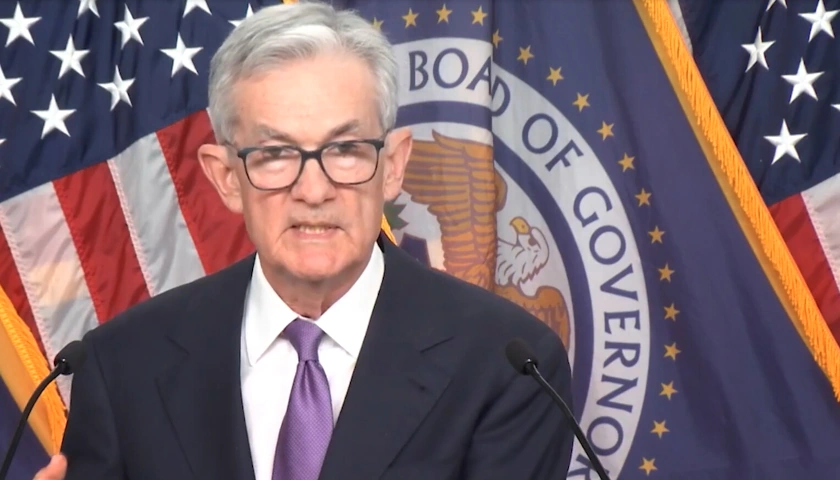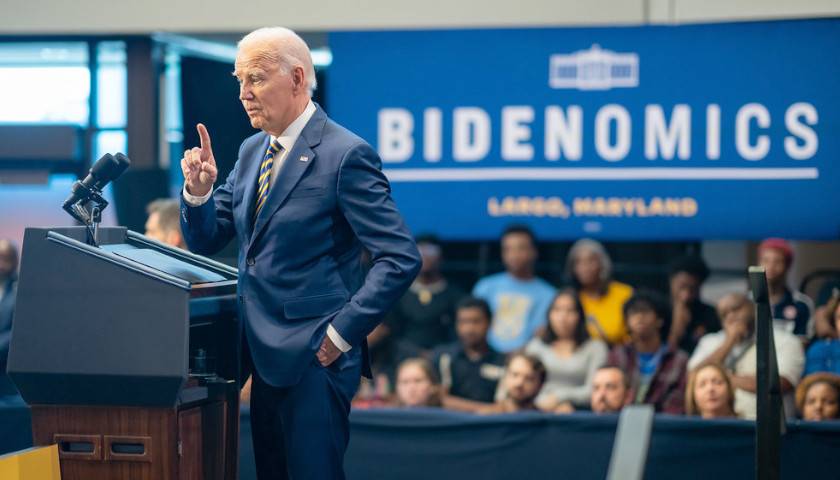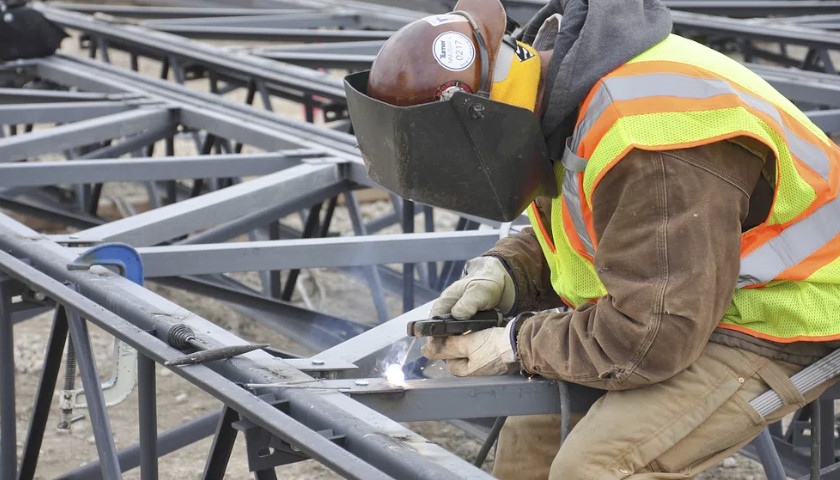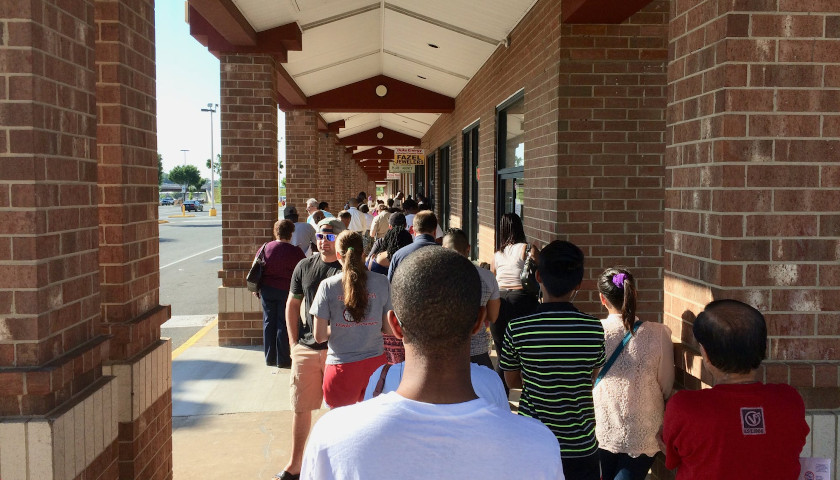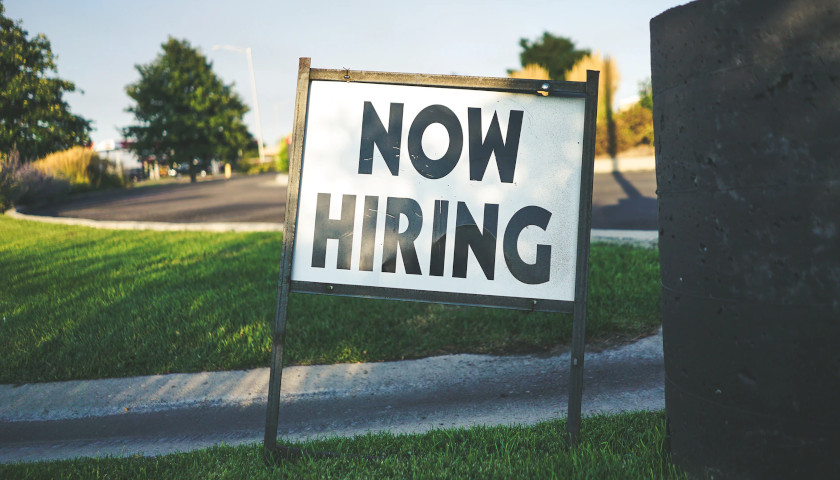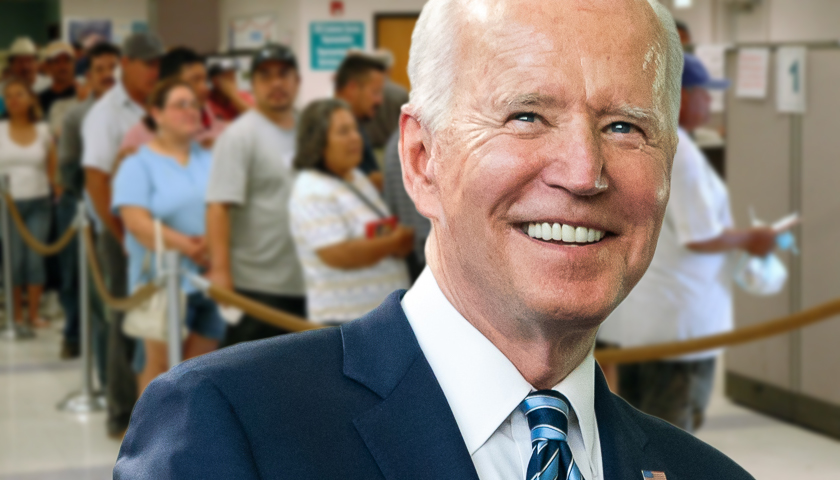The Federal Reserve is expected to hold the bank’s key interest rate steady this week. Traders currently expect three rate cuts this year beginning in September.
Read MoreTag: Labor Market
Atlanta Fed’s Bostic ‘Optimistic’ Economy Headed ‘In the Right Direction’
The head of the Federal Reserve Bank of Atlanta remains “quite optimistic that things are heading in the right direction.”
In a video message posted Thursday alongside a longer-form piece, Raphael Bostic, president and chief executive of the Federal Reserve Bank of Atlanta, said that after the inflation rate declined rapidly in the second half of 2023, it seemed to stall early this year.
Read MoreKC Fed Analysis: Migrants Cooled Overheated Labor Market, Slowed Wage Growth
The increase of migrant workers during the last two years cooled an overheated labor market and slowed wage growth across industries and states, according to an analysis of government statistics.
“The influx of immigrant workers appears to have helped alleviate the severe staffing shortages in certain industries that were pervasive during the pandemic’s volatile period,” Elior Cohen, an economist with the Federal Reserve Bank of Kansas City, wrote in the organization’s Economic Bulletin. It serves Colorado, Kansas, western Missouri, Nebraska, northern New Mexico, Oklahoma and Wyoming.
Read MoreCommentary: Under The Hood, the Jobs Report Is Not Strong
Looking under the hood of today’s jobs report shows it isn’t the home run that Democrats and the media claim.
Approximately half of the 303,000 jobs created last month came in the unproductive government or quasi-government healthcare sectors. These are not the types of jobs that drive growth and improve Americans’ living standards.
Read MoreLocal Restaurants Can’t Keep Up with Minimum Wage Hikes, Inflation
Minimum wage hikes in many states around the country and sky-high inflation are crushing independent restaurants that don’t want to raise prices on their customers, according to the Wall Street Journal.
In January, 22 states raised their minimum wage for hourly workers, according to the WSJ. Around 59 percent of small business owners said that higher labor costs were the biggest source of inflation in January, requiring price hikes to maintain current revenue levels.
Read MoreUnion Power Slips as Percentage of Union Jobs Declines
The percentage of hourly and salaried workers in a union decreased in 2023, continuing a trend of ongoing decline in the past few decades.
The decline in 2023 was small, from 10.1% of the workforce to 10% even, but the trend is significant. In 1983, about 20% of hourly and salaried workers were in a union, meaning U.S. union membership has halved in about four decades.
Read MoreCommentary: Bidenomics Is The Grinch Who Stole Christmas
The labor market continues to soften, with 199,000 jobs created last month, well below the recent average. Real job creation is far lower than this topline number suggests. Nearly 50,000 jobs were unproductive government jobs, continuing the trend of disproportionately high government job growth. The return of striking auto workers accounted for about 30,000 jobs. And 77,000 jobs were created in healthcare, which is a quasi-government industry. That leaves only about 40,000 jobs created in the real economy.
Real wages continue to stagnate, growing at the same rate as core inflation following significant declines in the first two years of Biden’s presidency. As usual, job creation in previous months was revised down in today’s report. Nearly one million more Americans are unemployed since April.
Read MoreCommentary: Jobs Report Shows Cracks in Labor Market That Could Bring Down the Entire Economy
Cracks in the labor market and the broader economy continue to emerge. The October jobs report released Friday morning reveals that only 150,000 jobs were created last month, below expectations and well below the recent average. August and September job creation was revised down by more than 100,000, taking the sheen off the September jobs report.
The unemployment rate rose to 3.9%. While this figure is still low, there are now nearly one million more unemployed Americans than in April of this year.
Read MoreFed Holds Interest Rates, No Hike, as Expected
The Federal Reserve on Wednesday kept its benchmark interest rates, as expected.
The Fed held the rate amid a growing economy and labor market and inflation that remains about the central bank’s target. But additional increases also raise concerns about throwing the U.S. economy into a recession.
Read MoreSmall Business Owners Remain Pessimistic About the Economy
Small businesses have ongoing concerns about the health of the economy, a newly released survey shows.
The National Federation of Independent Businesses released survey results Tuesday showing that their July polling of small business owners found they are less optimistic about the economy than the historical average.
Read MoreCommentary: Bidenomics Is Pouring Cold Water on the Labor Market
Friday’s jobs numbers show the labor market is softening due to Bidenomics and Bidenflation. Only 187,000 jobs were created last month. That’s below expectations, 40% less than the 12-month average, and the lowest level since the pandemic. Previous months’ employment growth was also revised down significantly, taking the sheen off recent jobs reports.
Average wages grew slower than core inflation, meaning Americans’ real wages and living standards remain stagnant. Friday’s numbers come on the heels of this week’s JOLTS report showing the fewest number of job openings and the fewest number of Americans quitting their jobs since the pandemic.
Read MoreJobless Claims Soar to Highest Levels Since 2021
The number of Americans who filed new unemployment claims increased more than expected to 261,000 in the week ending June 3, the Department of Labor (DOL) reported Thursday.
Claims rose 28,000 compared to the previous week’s revised level, the highest number since October 2021, when it was 264,000, according to the DOL. This substantially exceeded the median forecast, which was 236,000, according to MarketWatch.
Read MoreCommentary: Don’t Believe The Jobs Day Hype — Americans Are Still Getting Poorer
Friday’s jobs report shows 339,000 jobs were created in May, beating expectations again. While Democrats and the media celebrate, the labor market condition is not as strong as this topline number suggests.
The report shows that real wages continue to decline. For the 26th consecutive month, average wages grew slower than inflation. The Biden presidency will forever be marked as one where Americans got poorer and saw their living standards decline.
Read MoreLabor Market Remains Tight as Unemployment Ticks Up
The U.S. added 315,000 jobs in August, as unemployment rose slightly to 3.7%, according to data released by the Department of Labor Friday.
The number of unemployed people rose by 344,000 to 6 million, an increase of 0.2 percentage points from July, accordingto the Bureau of Labor Statistics data. A survey of economists conducted by The Wall Street Journal in advance of the report’s release estimated that 318,000 jobs would be added and that unemployment would remain around 3.5%.
Read MoreBusinesses Fail to Find Workers, and Experts Say Federal Policies Have Made It Worse
A new labor market survey found that a majority of employers, particularly restaurants, still cannot find enough workers.
The new report from Alignable said that 83% of restaurants can’t find enough workers. Overall, the report found that “63% of all small business employers can’t find the help they need, after a year of an ongoing labor shortage.”
Read MoreThe U.S. Has Nearly Recovered All the Jobs Lost to COVID Lockdowns
The U.S. economy recorded an increase of 431,000 jobs in March as COVID-19 concerns ease and more Americans seek work to combat the surging cost of living.
Total nonfarm payroll employment increased by 431,000 in March while the unemployment rate dipped to 3.6%, according to the Bureau of Labor Statistics (BLS). Economists surveyed by Dow Jones predicted the U.S. economy would add 490,000 jobs.
Read MoreU.S. Adds 531,000 Jobs in October, Exceeding Expectations
The U..S. economy recorded an increase of 531,000 jobs in October, and unemployment fell by 0.2% as the labor market recovers from the summer lows, according to the U.S. Bureau of Labor Statistics (BLS).
The number of unemployed people fell to 7.4 million, down from 7.7 million in September, according to the BLS report released Friday. Economists surveyed by Dow Jones projected 450,000 jobs would be added in October.
While unemployment claims continue to fall, the country still struggles with labor shortages, supply chain issues and growing inflation. Job growth was widespread throughout the economy in October, with leisure and hospitality adding 164,000 jobs, professional and business adding 100,000 and manufacturing adding 60,000 jobs, according to the BLS report.
Read MoreRecord 4.3 Million People Quit Their Jobs in August as Workers See Opportunity in Chaotic Labor Market
A record 4.3 million Americans quit their job in August as retail and bar and restaurant industries saw the largest surge in employees who left their positions, according to the Bureau of Labor Statistics report released Tuesday.
Roughly 2.9% of the workforce left their jobs in August, a jump of 242,000 from July’s figure, according to a Bureau of Labor Statistics (BLS) report. Experts believe the jump from July’s record-setting number is partly due to workers wanting jobs with more convenient hours, better pay, or working conditions, The Washington Post reported.
Read MoreBiden Administration Won’t Push Pandemic Unemployment Bonus Extension
The Biden administration signaled to Capitol Hill lawmakers Thursday that it will not support an extension of pandemic-related unemployment benefits.
President Joe Biden won’t advocate for an extension of the $300 unemployment bonus given to millions of out-of-work Americans on a weekly basis, Treasury Secretary Janet Yellen and Labor Secretary Marty Walsh wrote in a letter to Senate Finance Committee Chair Ron Wyden and House Ways and Means Committee Chair Richard Neal. The Federal Pandemic Unemployment Compensation (FPUC) program, which was implemented in March 2020 and extended by Democrats’ recent American Rescue Plan, is set to expire in early September.
“As President Biden has said, the boost was always intended to be temporary and it is appropriate for that benefit boost to expire,” the secretaries wrote.
Read More
